Need to apply technology to detect unusual transactions, regain investor confidence
In an effort to make the market transparent and regain investor confidence after a series of stock manipulation cases involving Trinh Van Quyet and Do Thanh Nhan, as well as to meet the conditions for upgrading the market from frontier to emerging, regulatory agencies have implemented many measures to control trading activities. However, violations of manipulation continue to occur.
Must block the violation from the root
The State Securities Commission has just issued a decision to impose administrative sanctions on 23 individuals who lent their accounts to trade securities, leading to violations of stock market manipulation for GKM shares (GKM Holdings Joint Stock Company). Previously, in August 2024, the Hanoi City Police Department issued a decision to prosecute the case and prosecute 7 suspects for stock market manipulation of the stock code CMS of CMH Vietnam Group Joint Stock Company. The incident took place from May 2023 to May 2024, after the major cases of Trinh Van Quyet and Do Thanh Nhan were exposed.
The market still occasionally sees individuals being fined from several hundred million to several billion VND by the State Securities Commission for stock manipulation, but not to the extent of criminal prosecution.
In addition, the market also has many stocks that have increased to the ceiling or decreased to the floor for many consecutive sessions, but investors and leaders of listed companies all say they do not know the reason. This makes many people still consider the stock market a game of chance or a casino because profits and losses do not come from the internal business or the development of the economy. And in the context of the market going down for no reason, investors believe that there are "invisible hands" controlling and forcing stock prices, causing the market to turn red, going against the general trend of the economy both domestically and internationally.
According to experts, to contribute to increasing market transparency, regaining investor confidence, and making the stock market truly a "thermometer" of the economy, there needs to be more tools to detect and prevent violations. Associate Professor, Dr. Nguyen Huu Huan, Ho Chi Minh City University of Economics (UEH), suggested that state management agencies have more training programs so that investors understand that securities are an effective place to mobilize capital for the economy.
Investors who participate long enough, hold stocks to enjoy the company's income, not buy low, sell high as is the case now. Only then will stocks develop sustainably and truly become a "thermometer", meeting the medium and long-term capital needs of the economy. Currently, most investors participate in stocks mainly for speculation, so the loss rate is high.
According to this expert, the management agency needs to continue to be transparent, clean up the market with regulations and monitoring mechanisms that are punitive, deterrent, and detect abnormalities. For example, regulations require public disclosure of the securities trading order book to detect which stocks are being manipulated, and which buy and sell orders show signs of abnormality. Public disclosure of the order book does not mean naming specific investors or revealing personal information, but rather to provide the market and independent research agencies with information, to know how the money flow is going, and which stocks have unusual transactions?
"Regulators can apply Big Data and Artificial Intelligence (AI) to detect unusual transactions. From there, insider trading, price fixing and price manipulation can be identified.
Each stock code has a very large daily trading volume, the whole market has thousands of stock codes, it is very difficult for an ordinary person to detect. But if technology is applied, we will see unusual transactions, from there we can investigate, detect violations from the root and prevent them" - Mr. Huan analyzed.
In addition, experts also agree on a simple solution: major shareholders must disclose information. If they have not disclosed, they will not be allowed to place orders and the management agency will not approve these buy-sell orders. If these solutions are applied, investors will regain confidence.
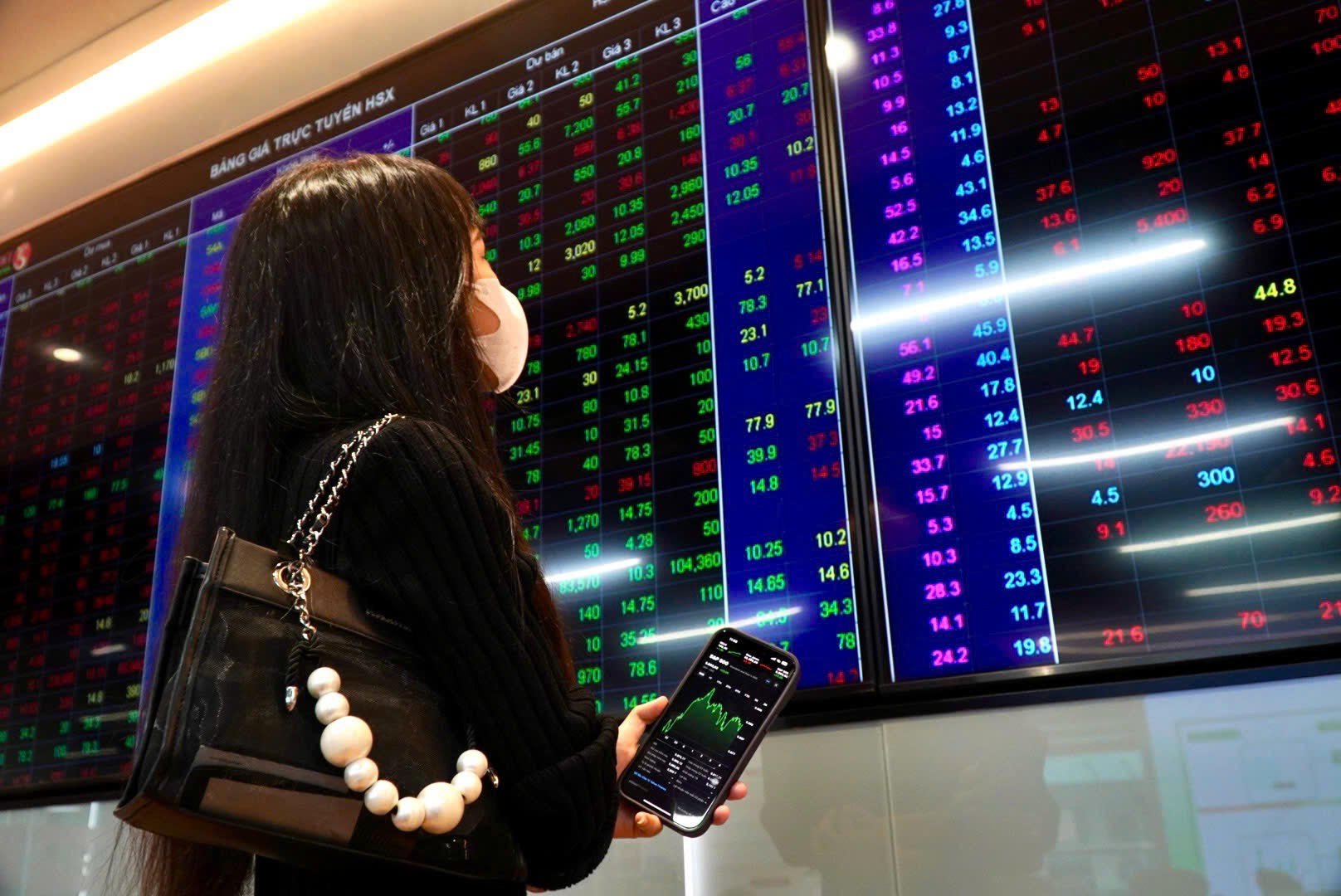
Domestic investors are increasingly worried about the developments of the stock market. Photo: QUYNH TRAM
No bottom yet?
Returning to the current stock market, on November 19, VN-Index continued to fall sharply by nearly 12 points, falling close to the 1,200-point level. A series of stocks were submerged in red, causing investors to panic. Many investors who participated in "bottom fishing" stocks on November 18 continued to suffer heavy losses.
Meanwhile, foreign investors are still net sellers, leaving domestic investors to lament. In just the last 3 trading sessions, they have net sold more than 3,500 billion VND, greatly affecting the sentiment of domestic investors. Many people are wondering "are foreign investors taking profits or fleeing?".
According to Mr. Nguyen Viet Duc, Digital Business Director of VPBank Securities Company (VPBankS), the trading ratio of foreign investors is currently quite low, only 8%-9% of total transactions in the whole market. However, investors consider foreign investors' money as "smart money", so they keep selling, making domestic investors worried, not knowing what will happen next. "Investors' spirit is now very low, if foreign investors return to net buying for 1 to 2 weeks, the market trend will definitely change" - this expert commented.
Economist - Dr. Nguyen Tri Hieu also said that although foreign investors account for a small proportion of transactions, they are playing a leading role in the cash flow trend. "Domestic investors are mainly small individuals, lacking knowledge about finance and the market, so they often buy and sell stocks based on rumors and are easily lured by crowd psychology. When foreign investors sell net, individual investors are also greatly affected" - Mr. Hieu said.
Mr. Chen Chia Ken, General Director of Phu Hung Securities Company, acknowledged that the Vietnamese stock market currently has some problems, including liquidity and capital flow in the economy.
"The market currently does not have many new options to meet the needs of foreign investors. Partly due to the limitations on foreign ownership ratios, state capital divestment in large enterprises is still unfinished. Cash flow from domestic individual investors pouring into the stock market is not as abundant as before" - Mr. Chen Chia Ken said.
Need to attract more institutional investors
One of the issues that the market needs to improve, according to experts, is the investor structure. Because currently the majority of daily transactions on the stock market come from individual investors. This capital flow is sensitive to information and easily influenced by emotions.
The fact that the VN-Index has not yet surpassed the psychological threshold of 1,300 points is also evidence that investors will tend to seek to take profits if the VN-Index approaches this area and causes obstacles that make it difficult for the market to break out.
Mr. Chen Chia Ken said that the number of institutional investor accounts is still modest. Investment funds such as mutual funds or ETFs are not really popular with the majority of people in the country. Although the scale and number of ETFs have increased significantly compared to the previous period.
___________
(*) See Lao Dong Newspaper from issue dated November 19
Source: https://nld.com.vn/chuyen-gi-dang-xay-ra-voi-chung-khoan-manh-tay-voi-thao-tung-lam-gia-co-phieu-196241119211358345.htm



![[Photo] Closing of the 11th Conference of the 13th Central Committee of the Communist Party of Vietnam](https://vstatic.vietnam.vn/vietnam/resource/IMAGE/2025/4/12/114b57fe6e9b4814a5ddfacf6dfe5b7f)





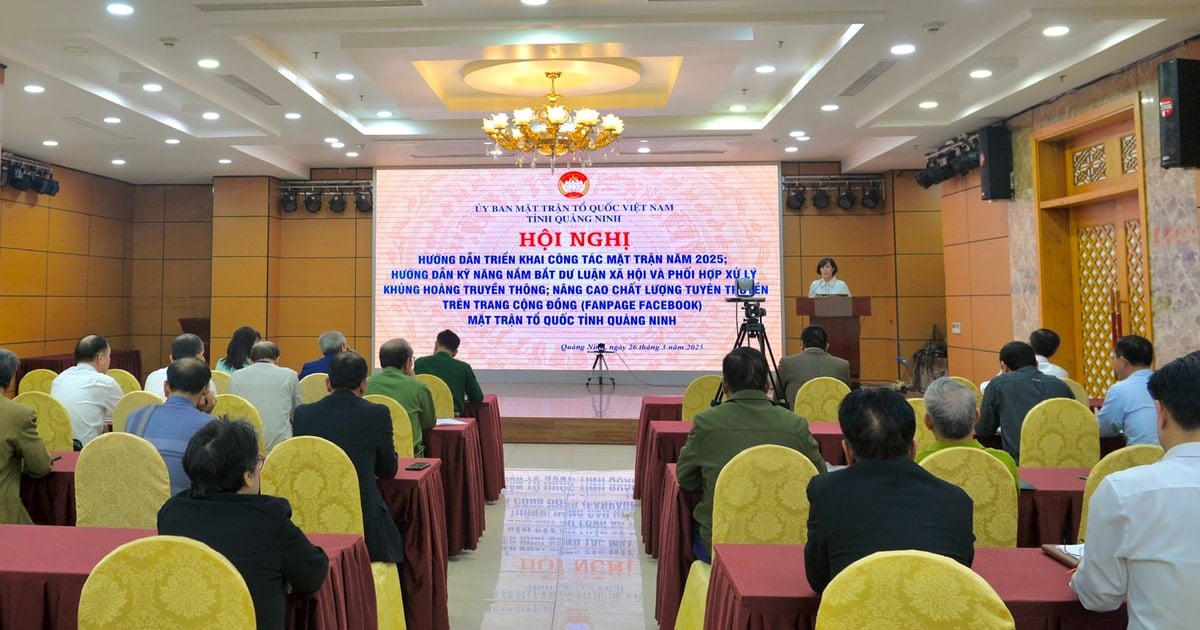

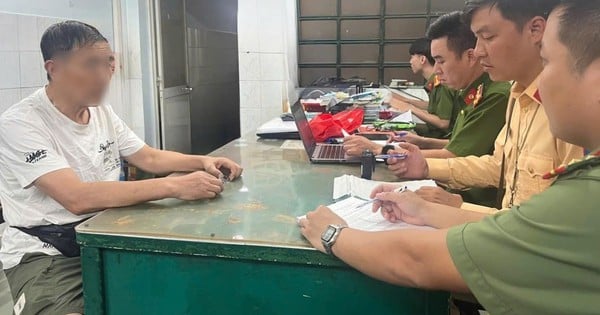





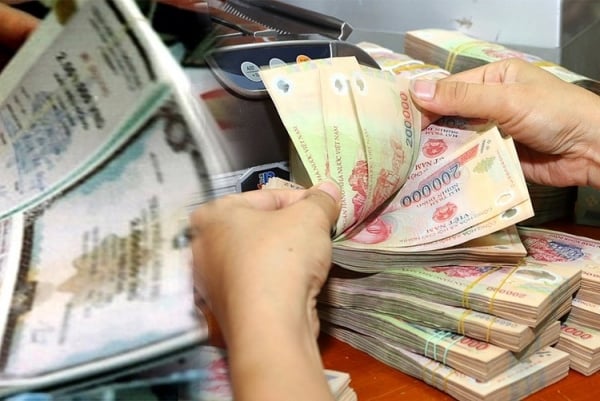
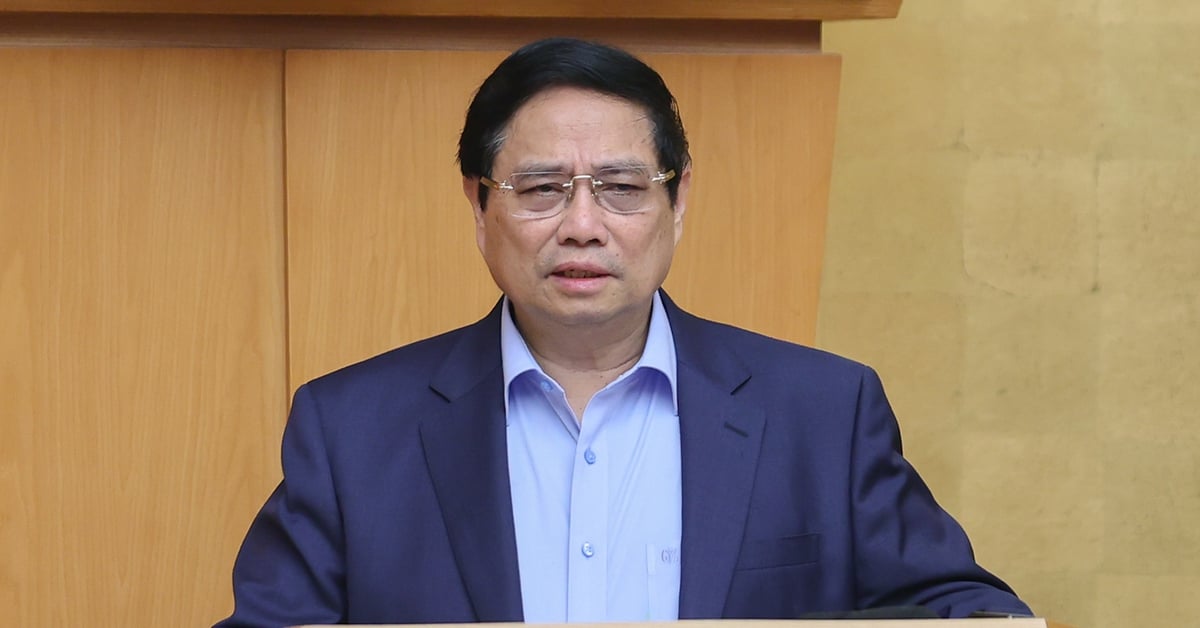
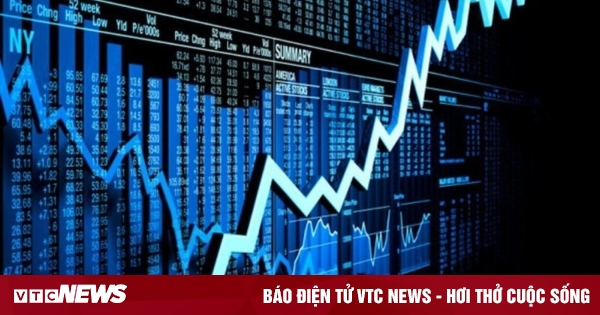


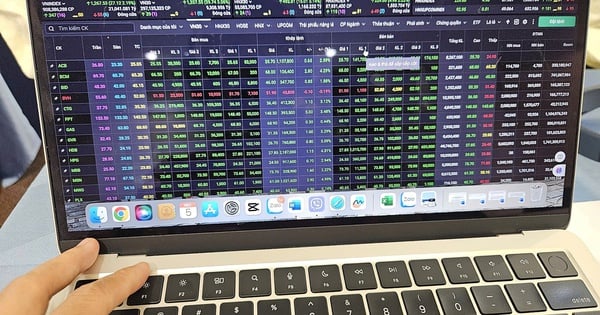










![[Photo] Overcoming all difficulties, speeding up construction progress of Hoa Binh Hydropower Plant Expansion Project](https://vstatic.vietnam.vn/vietnam/resource/IMAGE/2025/4/12/bff04b551e98484c84d74c8faa3526e0)

































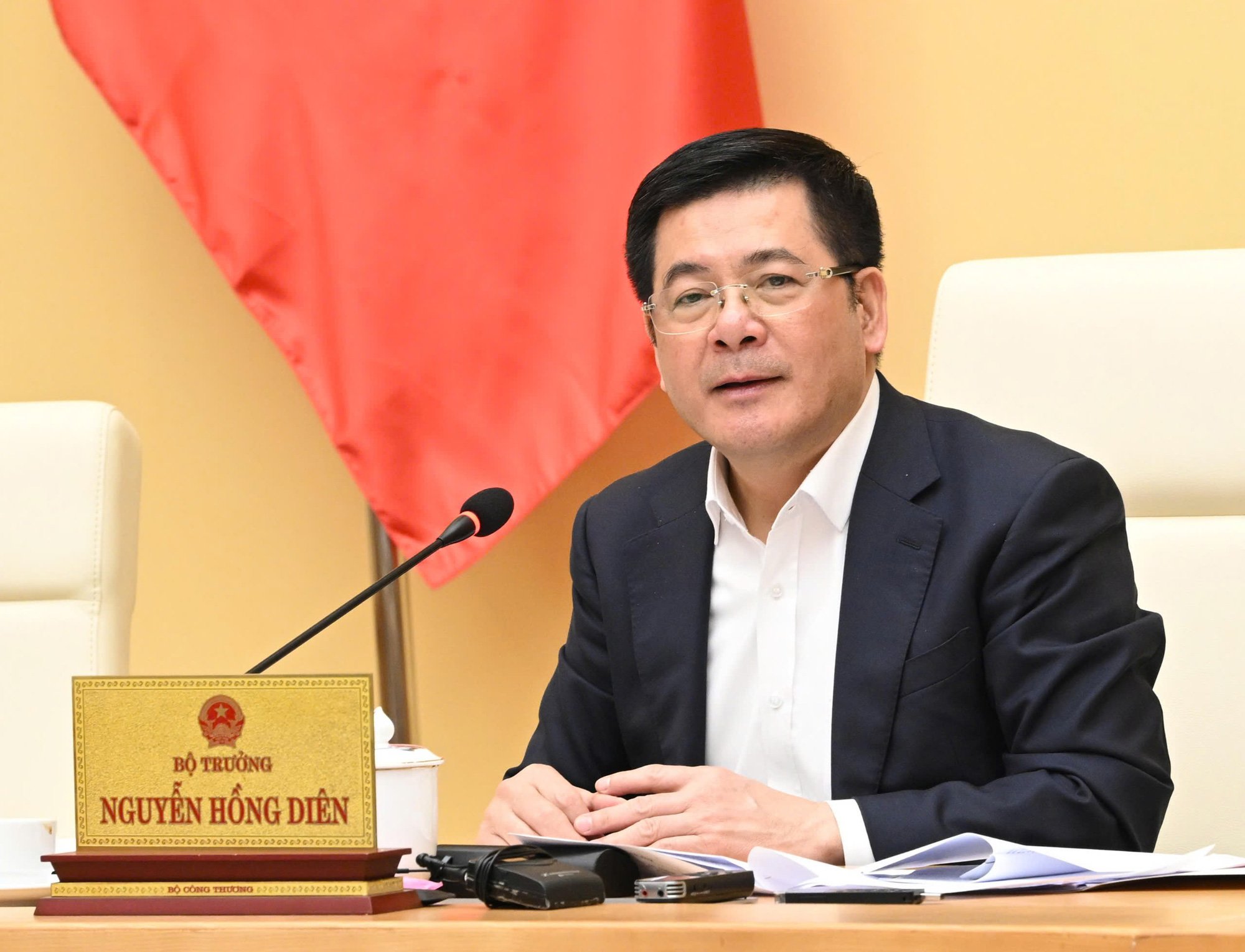





























Comment (0)